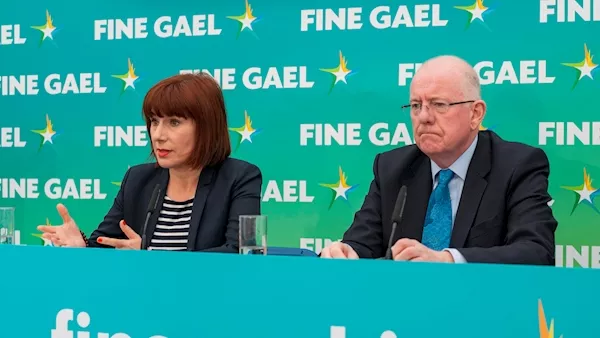More than 4,000 couples separating annually will be spared lengthy emotional and financial distress if voters back proposals to allow for quicker divorces in Ireland.
That is according to Fine Gael ministers who today launched the party's referendum campaign to reduce the waiting period for a divorce and to also remove control over this from the Constitution.
Culture Minister Josepha Madigan, who has spearheaded the campaign, said the current rule requiring divorcing couples to live apart for four years resulted in more legal costs and was more "damaging" for any children involved.
An estimated 4,000 people apply for divorce annually in Ireland, she said, adding: “It's very easy to say 'I do', it's not so easy to say 'I don't'.” Some 3,412 divorces were granted in 2017.
Under the referendum proposals, rules governing the waiting period for separating couples would be taken out of the Constitution and instead be decided by politicians in the Dáil.
The time couples must live apart before they get divorced would also be reduced from four years to two.
Ms Madigan said there was “no fear” Ireland would become a location for "divorce tourism".

Justice Minister Charlie Flanagan also denied the changes would trigger so-called “quickie” divorces.
The Government said Ireland currently has a divorce rate of one in 10, one of the lowest in the world, and that changes proposed for the May 24 vote are moderate.
Mr Flanagan said the delay for couples waiting to separate resulted in the running of two households instead of one and that people could not move on with their lives.
“The real toll is not knowing, not being able to manage,” he said.
The Laois-Offaly TD said he believed there was nationwide support to amend article 41.3.2 of the Constitution and for voters to also allow the Oireachtas to instead legislate for divorce.
There is cross-party support for a Yes vote and no group has yet announced a campaign to oppose the amendment, including leaders in the Church.
Nonetheless, Mr Flanagan insisted there could be no apathy in the campaign.
Lisa Hughes, a woman from Dublin who addressed the launch, outlined her own difficulties in overcoming a long divorce under the current rules.
She urged everybody to vote Yes and insisted the reforms would be “hugely beneficial” for the thousands of couples who struggled through lengthy separation processes.
“It will make a huge impact in people's lives,” said Ms Hughes.
The original referendum for divorce in Ireland in 1995 was passed by a small margin of 50.28% to 49.72%.






